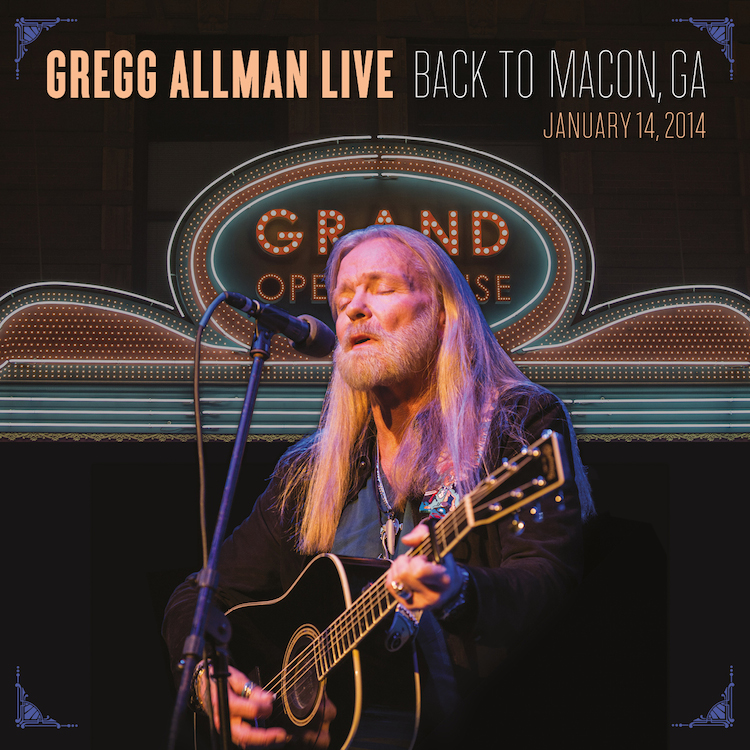 In the summer of 2015, Gregg Allman released Live: Back To Macon, GA, an excellent solo recording that captured his then-current band at the peak of its creative powers. When BCB editor Jeff Tamarkin spoke with Allman upon the release of the live album, the rock legend, born December 8, 1947, was enthusiastic and hopeful for the future. After that, Allman had his ups and downs, to be sure, canceling, rescheduling and then canceling again an American tour. He passed on May 27, 2017.
In the summer of 2015, Gregg Allman released Live: Back To Macon, GA, an excellent solo recording that captured his then-current band at the peak of its creative powers. When BCB editor Jeff Tamarkin spoke with Allman upon the release of the live album, the rock legend, born December 8, 1947, was enthusiastic and hopeful for the future. After that, Allman had his ups and downs, to be sure, canceling, rescheduling and then canceling again an American tour. He passed on May 27, 2017.
This interview wasn’t shared until Best Classic Bands published it later that year.
What do you remember about the very beginning of the Allman Brothers Band?
When we first got together, I was the last one to get there. I got there [from Los Angeles] on March 26, 1969. My brother Duane was waiting to get everyone else together. We’d all met in Jacksonville and he called me on the 24th of March and told me that he was tired of being in the studio in Muscle Shoals. He was ready to get back on the stage. He said, “I got this band together. There’s five guys, counting me. I need you to come out here and send it somewhere, and sing and write.”
When you do Allman Brothers songs now, do you still find new ways to play them?
Oh, yeah. First of all, I play very few songs that I didn’t write for the Brothers. I’ve totally rearranged all of them. Some of them you won’t even recognize until I get into it.
Why did you record a live album rather than a new studio album?
That’s in the works now. We’re going to Muscle Shoals in February [2016], with Don Was producing. I’m using no one else. I was kind of a bit against putting out this live record so soon but I needed to show everybody my new band, so I went with it.
What keeps the old songs fresh for you?
You have to play them kind of different every night. We’ll always have a little meeting with my band before the gig—not really a meeting but on the wings of the stage—and I give them a little pep talk, because the odds of nine people feeling totally up to par every night is not really high. Happiness and energy and getting ready for something like that spreads just as much as when someone brings their problems on stage. That’s where you dump all that stuff. Certain people I’ve played with have brought their problems on stage and that spreads and holds everybody back. You have to almost forget that there’s an audience there. You play for each other and you play for the gods. I always play to say thank you, God, for letting me be alive. I marvel at it just about every day.
And you get to do what you love.
Really. It’s my passion. So many people going back and forth on that freeway every day and they hate it. I’d much rather go to work than go to the islands, even. Each one has its place—I love to go deep sea fishing; that’s my favorite thing to do.
Do you feel like you’re enjoying a new freedom with your post-ABB band?
I really do. The thing about the Allman Brothers is there never was a focal point. It was never, “You play this and you play that.” It was just somebody saying “go” and “stop.” Allman Brothers rehearsals, we’d talk and we’d bullsh*t, we’d eat, and it would take a week to get some stuff done. My guys, if I raise my hand, the music stops immediately. I’m keeping the tempo with my foot. We’ll go over it again and again and then we’d wait a while, go over a couple of other songs and come back to it, and they’ve got it. I’ll call them before rehearsal and say, “We’re gonna do this song and this song.” Unless it’s a brand new song I’ve written, they know it by the time I get there. It’s just getting the arrangement down—where to place the verses, where to place the bridge. Now we have to inject more solos with the songs because we have so many incredible soloists. It’s brand new and it’s exciting. It’s quite a youthful feeling, and a very blessed feeling. I feel like I’m having my second career.
Related: Music world mourns Gregg Allman
Do you miss being with the ABB?
No, I don’t miss it. I think about the people at times but I had planned on doing it [breaking up] in 2009, when we had the 40th anniversary, but we had all these people sitting in and it came off so good that I said, “What the hell.” But I was working on my band—it took me a little over seven years to find everybody. It worked out pretty well—there’s been three people changed: I got two of Bobby Bland’s horn players and I got a new piano player. I picked people that I could learn from and I look up to. I pick people that, in my opinion, are way better than me.
You’re playing a lot more guitar now.
It’s about half guitar and half organ.
Any particular Hammond organ players who inspired you?
Oh, yeah. Of course there’s Jimmy Smith, He was the master of them all. There are a few rules: You don’t mess with my old lady. You don’t mess with my Harley Davidson. And you don’t sit behind my damn Hammond. You cannot touch it. Learning one, and getting the fever for wanting one was not the easiest thing to do. My mother was an accountant for these two exclusive restaurants in Daytona Beach, where I grew up. One that she worked at had a guy who played at night while the people had dinner. They had a piano and a Hammond B-3. They would leave it unlocked and she’d take me there after school and I’d ease in there and I’d crank that boy up. I never got caught. I just fooled around with it. So I started to want to play keyboards and I got an old Wurlitzer electric piano. This was when I was in the Allman Joys. It sat on the end of the stage and I’d play guitar all night and then for two or three songs I’d move over to it, and then more and more. Long story short, when my brother called me on March 26, 1969, and asked me to come join what was to become the Allman Brothers, just as I was about to hang up and go stick out my thumb—because I was in L.A. and he was in Jacksonville—he said, “Oh, wait. I need you to play that Hammond B-3.” I said, “I don’t know how to play one,” and he said, “Ah, you’ll learn.”
Did you know that the Allman Brothers Band had something special right from the start?
We did, man. When I got to Florida I took a drink of water and Duane handed me the lyrics to “Trouble No More.” He said, “This goes one beat over a 12-bar. Muddy Waters wrote it that way.” I said, “All right, let me study this lyric,” and he said, “Don’t worry, you’ll get it. 1-2-3-4…” It kind of pissed me off but I gave it all I got and I guess it worked.
What was the Allmans’ biggest contribution to music, in your opinion?
We stuck to our guns, man. They tried to make us pop. They tried to dress us up. They tried all kinds of gimmicks and we told them, “Hey, put it where the sun don’t shine.”
The 1973 Watkins Glen Festival: 600,000 people. What was it like?
It was just a sea of people. It was quite scary. And even scarier than that was the helicopter ride over there. I haven’t been on another one since.
All the awards you’ve won—what do they mean to you?
It means a lot to me. It’s a monument to a lot of fun and a lot of hard work.
Related: Our Album Rewind of Gregg Allman’s solo debut, Laid Back
You’ve had some health scares. How are you feeling now?
I’m doing real good. I had the transplant and you have to take these pills to keep your body from rejecting the organ, and the main side effect to this pill is it lowers your immune system. Now I’ve gone gluten-free and I juice every day.
What would you tell the 1969 Gregg Allman if you could meet him?
Hold on to what you’ve got!
Watch Gregg Allman perform “Midnight Rider” in Macon, Georgia, in 2014
The band’s enormous recorded legacy is available here.
Related: Our Album Rewind of the Allman Brothers Band’s Brothers and Sisters

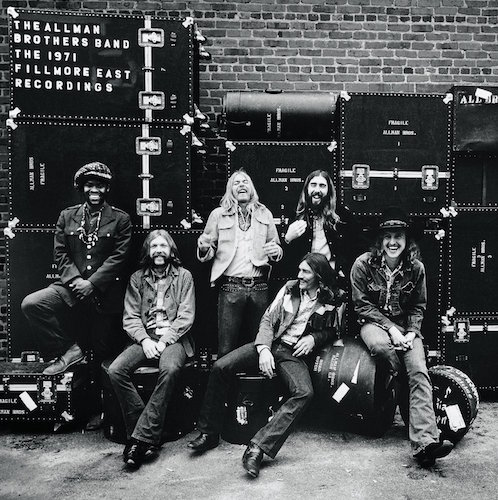
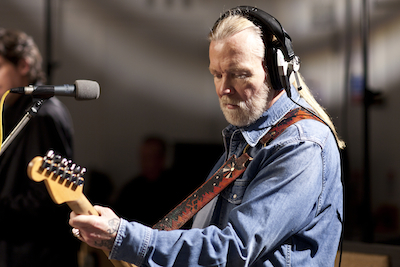

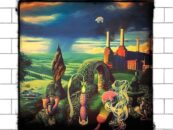
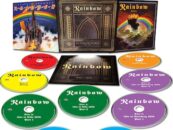
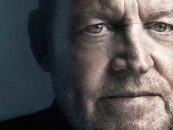
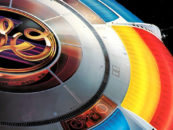

2 Comments so far
Jump into a conversationThanks, Jeff. Not sure why this interview sat, but thanks for aharing it now. After yesterday’s sad news, brought me to tears.
Been listening to ABB and solo Gregg, from all eras, since I heard the news last night. I don’t imagine I’ll be listening to anyone/anything for awhile.
I understand what you are saying Guy.
After Butch Trucks and Gregg Allman left us, especially in such a short time in between – as much as I love ABB’s music, I could not get the mojo working to play my collection for a couple of years afterwards.
Same with Tom Petty, Johnny Winter, J. Geils, et al.
Can’t explain it, perhaps a “healing” period, but I am back into their grooves these years afterwards.
This article provided many insights into Gregg Allman and the ABB evolution.
I appreciate it bring published.